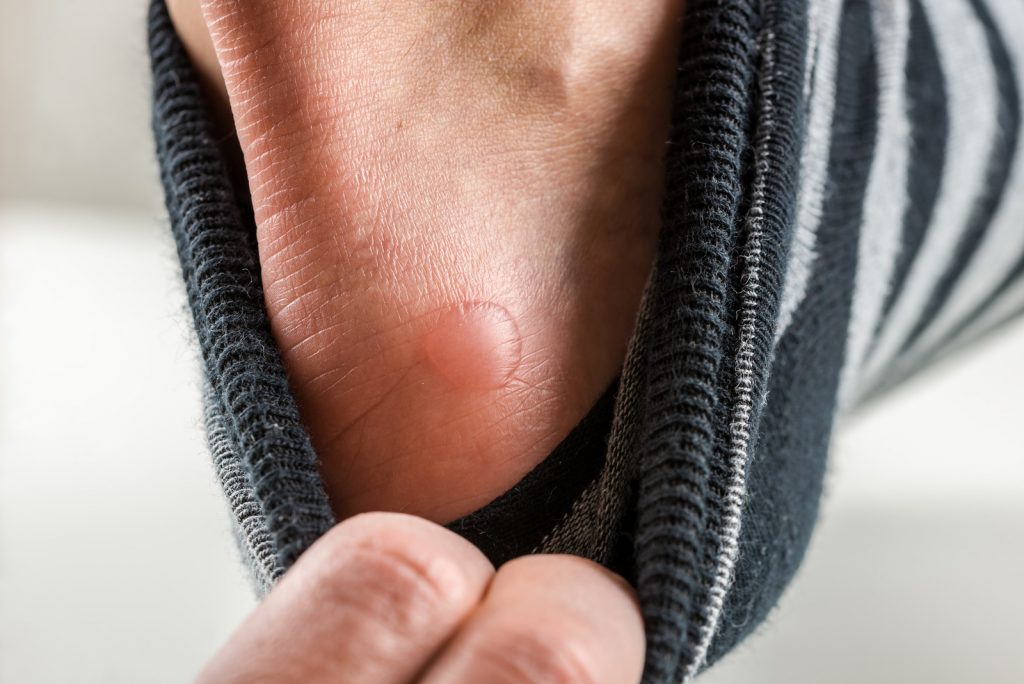Blisters

A blister is a fluid filled bubble that develops on the surface of skin. Foot blisters form from friction when skin rubs against shoes or another surface. This creates a tear in the epidermis, leaving a space between the layers of the skin, which eventually fills with fluid.
Causes of blisters
Blisters are caused by friction, heat, inflammation, or moisture. Friction blisters usually develop when feet rub against shoes. They can be prevented by gradually breaking in new shoes or bandaging areas of skin that tender rub against the shoe.
Common causes of blisters include:
- Allergic reaction
- Autoimmune diseases
- Chemical injury
- Contact dermatitis
- Frostbite
- Fungal infection
- Inappropriate footwear
- Insect bites
- Minor burns
- Blister symptoms
All blisters look similar and have the telltale bubble of skin filled with clear fluid. They can range in size from a few millimeters to as large as an inch in diameter.
Blisters may be accompanied by pain, warmth, redness, and itching. Some blisters are painful to the touch and others may simply feel tender. If the fluid within the blister is yellow or green, this may be a sign that blisters infected.
Blister treatment
Most blisters do not require a doctor’s care. You skin will form beneath the blister and the fluid will be absorbed. It is best to avoid puncturing a blister. The bubble of skin that develops over the blister is a natural barrier to bacteria, and helps reduce the risk of infection.
If blisters become painful and effect walking, it is best to drain the fluid while leaving the outer layer of skin intact area wash the area thoroughly and use a sterilized needle to make a small hole in the blister. Squeeze out fluid, apply an antibiotic ointment, and bandage the blister.
It is important to contact a physician if there are any signs of infection around the blister. If you have diabetes or any other condition that results in poor circulation, speak to a physician before treating a blister on your own.
